Why use plain English in your writing?
When I got my first marketing job after university, I thought writing well meant using fancy words and flowery sentences.
I was tasked with writing clients’ blog posts, and those first few must have sounded like they were straight out of a PHD thesis.

Some years and a couple of jobs later, I’d finally got the hang of writing in plain English. Instead of hiding behind complicated language, I was saying exactly what I meant. I realised my message was the most important thing, not proving the extent of my vocabulary.
Here’s why it pays to keep things simple, even when it’s tempting to garnish your writing like a Christmas turkey.
What is plain English?
Before we look at why plain (or simple) English is important, let’s define it. Plain English is all about making things straightforward for your reader by:
- Using common, easily understood words and phrases: go easy on the jargon, clichés, and formal vocabulary, and use contractions when it sounds natural.
- Forming clear sentences: give them a logical structure, break up long ones, get rid of unnecessary words and phrases, embrace the active voice, and don’t nominalise verbs too often.
Want to know how to do all of these things in your writing? We can teach you! Take the online course, which includes expert feedback on your writing, or get fully personalised support with one-to-one coaching.
Now you know what plain English is, why should you use it?
1. It helps you get through to people
When people “get” your message, you stand a better chance of influencing them and achieving your goals. You’ll also avoid costly misunderstandings. This is why your writing should be as clear as possible.
The more exclusive your vocabulary, the fewer people will know what you’re on about. Always consider your reader’s perspective, and beware of jargon and formal vocabulary they won’t understand.
This is especially important when you’re writing to a diverse audience. Let’s say you work in human resources and you’re emailing all of the employees at the large company you work for. They probably come from a wide range of professional, educational and cultural backgrounds, which means they won’t all share your knowledge and experience. So if you use words like “retrenchment” without explaining them, expect to alienate people outside of your department.
Always adapt your vocabulary to suit your audience. When it comes to sentences, though, it’s best to keep them simple no matter who you’re writing to. Take a look at the ‘Confusing sentence structures’ section of this post for specific tips.
2. It makes you think more clearly
Whether it’s puzzling words or messy sentences, unclear language often accompanies clouded thinking. As George Orwell puts it in his essay “Politics and the English Language”, “[The English language] becomes ugly and inaccurate because our thoughts are foolish, but the slovenliness of our language makes it easier for us to have foolish thoughts.”
Sloppy writing leaves plenty of room for mistakes. You can dress up illogical reasoning in meandering sentences and elegant vocabulary and hope no one notices. You may not even notice it yourself.
But if you’re strict with your writing style, logical lapses have nowhere to hide. A bad argument is easy to spot when you say exactly what you mean.
So simplify clichés, formal wording, and rambling sentences when you see them in your writing. Instead of writing “We’ve included new value-added features”, write “We’ve made the software faster and added new functions to provide a better user experience than our competitors”. Because “value-added” is vague, you can mention it without really knowing what you mean. But when you’re literal, you’re forced to be specific about the product’s benefits.
3. It saves everyone time
Plain English is faster to read because it’s easier to understand. But it’s also quicker because it’s shorter. When you remove unnecessary information, you can communicate the same message in fewer words.
Look for opportunities to cut down your writing without affecting its meaning. For example, just say “close” instead of “close proximity” as the two words mean the same thing. Say “gift” rather than “free gift” as a gift is always free.
You can simplify whole sentences too. Here’s a wordy sentence: “Because of the fact that long sentences can cause readers to experience confusion, it’s best to avoid making them too long and be concise instead.” And here’s a rewrite: “Long sentences can confuse readers, so be concise.” It’s 17 words shorter, but it means the same thing.
Being succinct saves your readers valuable time, not to mention making the writing process more efficient for you. It also helps prevent misunderstandings, which take time to clear up and can have other dire consequences as well.
Want to start putting these tips into practice? Our online business writing course includes detailed examples, interactive exercises, and feedback from your tutor. Start learning now!
4. It shows you’re human
When you’re writing at work, you want your reader to respond in a certain way. Perhaps you want them to buy your product or approve your request.
You’re far more likely to win your reader over if they can relate to you, and the language you choose helps with this.
When speaking to a colleague face to face, are you more likely to say “I’m going to utilise this document” or “I’m going to use this document”? You’d probably say “use” as it’s less formal and it sounds more authentic. So why change your language drastically when you write? It’s ok to be conversational unless you’re writing something like a legal document or a research paper.
You can also win people’s trust by using straightforward words instead of jargon. A recent study found that almost half of British professionals think people use jargon to impress, while 90 per cent say some use it to cover up incompetence. So don’t choose language that makes people roll their eyes or switch off completely. Write in a way your audience can identify with.
5. Corporate language excludes people
Office jargon creates an inner circle of people who speak and write in a way outsiders can’t understand. This makes it harder for those from different backgrounds to get involved in certain projects, apply for jobs, or progress into senior roles.
That might be fine if you promote people based on the amount of time they’ve spent in a corporate jargon-filled environment. But if you’re looking to engage a more diverse audience, as many companies are today, you could be discouraging people who aren’t already part of the in-group.
To avoid this, make sure your language is inclusive and accessible for all of your target audience, not just part of it.
Exclusive language can also be a problem for customers. It’s important that the people who use your products or services can access clear, accurate information about them. So check that your customer service emails, website, and other forms of external communication aren’t filled with terms that only make sense to internal people.
In the United States, all government agencies are legally required to use plain English in their writing to the public as it’s essential to helping people understand the services they receive.
Is there a case for flowery writing?
I’ve just spent the last few hundred words persuading you to write plainly. But don’t some of the best-loved writers in the English language use a more elaborate style? Shakespeare, for example, and Jane Austen?
Think of it this way. Business writing is all about sharing information. It’s about sending your ideas to someone else’s brain in the clearest way short of mind reading.
Using ornate language in business writing is like asking Monet to paint a flowchart. It might be pretty, but is it the best way to achieve your objective? You don’t need people to savour your emails and discuss their favourite parts with friends. You need them to take in your message quickly and completely.
You don’t have to spend years as a copywriter to harness the power of plain English. Start benefitting from simpler writing today by taking our online business writing course. You’ll learn quickly through detailed examples, interactive exercises, and feedback from your tutor.


